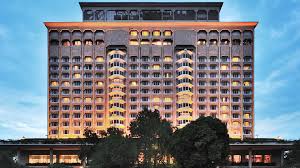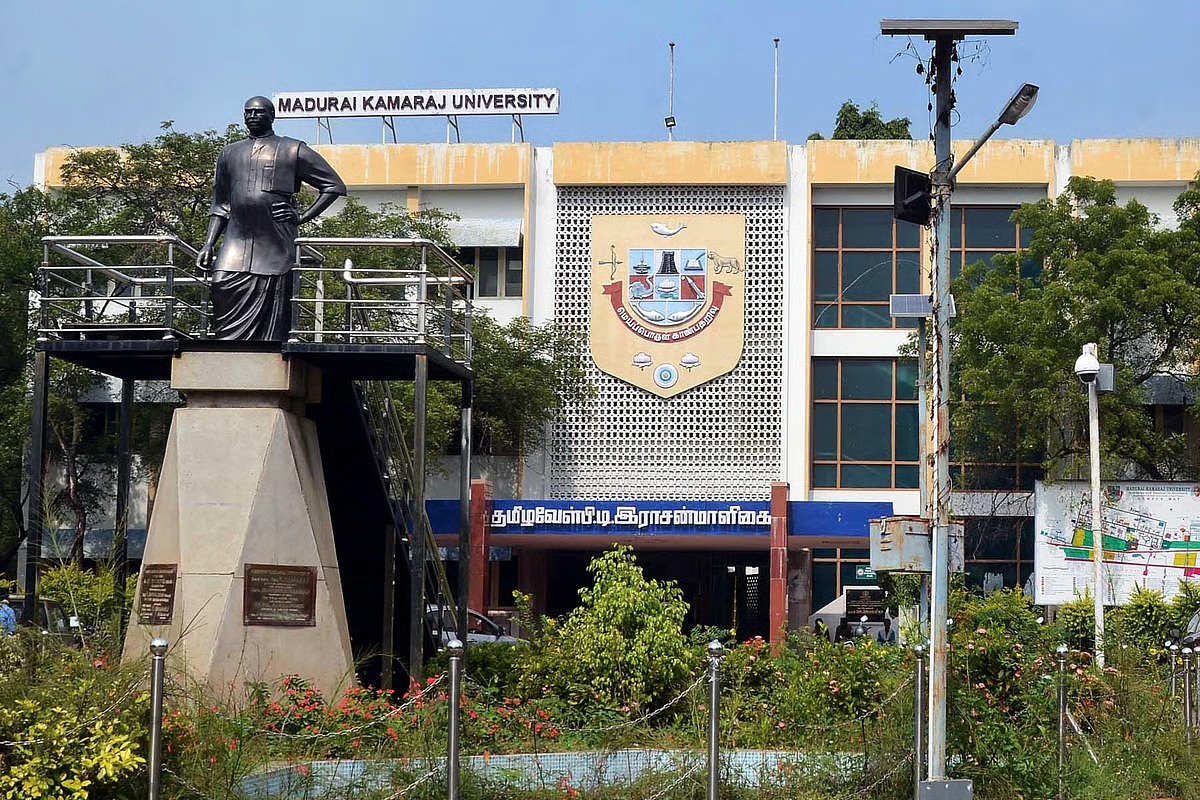1. The petitioner has filed this present writ petition being aggrieved by the order dated 20/06/2016 passed by the Civil Judge, Class-II, Indore. The petitioner / plaintiff has filed the suit for permanent injunction alongwith the application under Order 39 Rule 1 and 2 of C.P.C. The respondent no. 1 / Bank filed reply to the application under order 39 Rule 1 and 2 of C.P.C. The respondent has orally raised objection in the suit that the plaintiff has not properly paid the court fees on the basis of the relief claim. The objection taken by the respondent was upheld vide order dated 20/06/2016 and the plaintiffs were directed to pay the court fees @ 12% per annum i.e. Rs. 52,800/-, hence the present writ petition before this Court.
2. Counsel for the petitioner submits that the petitioner has only claimed relief of permanent injunction and therefore, they are liable to pay the fixed court fee @ Rs. 820/- and not Ad-valorem court fees.
3. Counsel for the respondent Shri Sinhal, submits that the plaintiffs have not only claimed the relief of permanent injunction, but also direction to the defendant, not to sell or transfer the subject house. These consequential relief cannot be granted unless the relief of declaration is granted. It is further submitted that the value of the subject house is about Rs. 10 lacs and an appropriate court fees would be Rs. 1.50 lacs i.e. maximum court fees.
4. I have heard the learned counsel for the parties
5. As per avernments in the plaint, plaintiff no. 1 is wife and plaintiff nos. 2 to 6 are son and daughters of Shri Harprasad Pandey. The said house was purchased by Shri Parmanand Pandey in the year 1958 in the name of his son Shri Harprasad Pandey and since then, they all are residing in the said house and according to them, hence they all have become owner of the said property. One Gajendra Pandey / plaintiff no. 2 took a loan of Rs. 3,50,000/- in the year 1999 under the employment scheme and it is alleged that defendant no 1 / Bank have given loan of Rs. 8 lacs in the year 2013 on the basis of the forged sale deed to defendant no. 2 and 3 and since they did not pay the loan amount, therefore, they were declared as defaulter. In the year 2016, over draft of Rs. 4 lacs was granted and without any enquiry and investigation, the said house was mortgaged in the Bank. When the said house was purchased, Shri Harprasad Pandey was not doing anything and his father had purchased the property, therefore, it is an ancestral property and all the plaintiffs have equal shares in it. The defendant has no right to sell the property or transfer the property for recovery of the said loan.
6. The Bank has filed the reply to the application under Order 39 Rule 1 and 2 of C.P.C submitting that from the pleading in the plaint, it is established that the property is the Benami transaction purchased in the name of Harprasad Pandey, which is prohibited under the Benami Transaction ( Prohibition ) Act, 1988. The Bank has initiated the recovery proceedings under the provision of the SARFAESI Act for recovery of the loan, therefore, under section 34, the Civil Judge has no jurisdiction to entertain any suit or proceedings in respect of cases the property. Debt Recovery Tribunal is empowered under the Act in respect of the recovery of the loan. On merit also, it was submitted that Shri Harprasad Pandey, who was owner of the suit property by way of sale deed dated 06/04/1959 has himself sold the said house to defendant no. 2 and 3 by registered sale deed dated 13/03/2009 and defendant nos. 2 and 3 become the owner. Defendant no. 2 and 3 took the home loan of Rs. 8 lacs and over-draft of Rs. 4 lacs and surrendered the sale deed with the Bank by mortgaging the property. Initially, the loan was taken by Jammu and Kashmir Bank which was taken over by defendant no. 1, therefore , the Bank has right to recover the loan by taking possession of the mortgaged property.
7. It is not disputed that the suit property was initially in the name of Harprasad Pandey, who is neither plaintiff nor the defendant in the suit. By registered sale deed, he has sold the property to defendant nos. 2 and 3 who took the loan from Jammu and Kashmir Bank and which was later on taken over by the Panjab National Bank.
8. Contention of the plaintiff is that the property was purchased by the father of Shri Harprasad Pandey in the name of Harprasad Pandey, therefore, they all have become the joint owner of the property and are in possession, therefore, the suit for permanent injunction is maintainable. The plaintiff has claimed following relief in the plaint.
"VERNACULAR MATTER OMITTED"
9. From perusal of the aforesaid relief, the plaintiff has
sought the relief of permanent injunction to sustain the
defendant from dispossessing them from the suit house
and not to sell and transfer the subject house, as they are
owner and in possession of the property. The plaintiffs are
yet to establish their rights of ownership over the
property and in possession of the property. In this suit,
unless declaration is granted to the plaintiff that they are
owner and the defendant has no right to dispossess them
or transfer or sell the suit property, the relief of
permanent injunction cannot be granted. The permanent
injunction has become consequential relief. The plaintiff
has cleverly drafted the claim and relief to avoid the
payment of Ad-valorem court fees. The plaintiff has not
sought relief of cancellation of sale deed between Shri
Harprasad Pandey and defendant nos 2 and 3. Unless that
sale-deed is declared void, the plaintiff is not entitled for
any relief. The plaintiff has not disclosed on what basis,
he has valued the suit at Rs. 4 lacs, whereas the present
market value of the property is much more.
10. The trial Court, on the basis of Rs. 4,50,000/- valuation has only directed to pay Ad-valorem court fees @ 12 @ per annum. The Apex Court in the case of Suhri Singh Alias Sardool Singh Vs. Randhir Singh and others reported in AIR 2010 SC 2807 has held that the executant of a deed wants it to be annulled, he has to pay ad-valorem court fee .
11. The Division Bench of this Court in the case of Israt Jahan Vs. Rajia Begum reported in 2010(1) MPLJ 50 has held that the suit for declaration that the registered sale deed executed by husband of the plaintiff no. 1 and father of plaintiffs no. 2 to 7 is illegal and void. Although the relief clause is couched in declaratory form, the relief sought by the plaintiffs shall have the effect on cancelling or avoiding it and it would be governed by sexton 7(iv)(c) and an ad-valorem Court fees would be payable as setting aside the sale deed is implicit in the declaratory relief sought by the plaintiff. Para 13 is reproduced below:
13 Contrary to this, it is found in the present
case that according tot he plaint averments
themselves, the suit property was owned by
Sabdar Hussain, who was husband of plaintiff
no. 1 and plaintiffs no. 2 to 7. it allegedly
devolved upon the plaintiffs after death of
Sabdar Hussain. In case, if the registered sale
deed executed by Sabdar Hussain on
24/04/2007 is not avoided, the suit property
cannot be treated as available for devolution
on plaintiffs. Thus, it is obligatory on the part
of plaintiffs to seek the cancellation or
avoidance of the said sale deed. Although
relief clause is couched in declaratory form,
relief of avoidance and / or cancellation is
implied in the declaratory relief contained in
plaint. This being so, the case of the plaintiff
is found squarely covered by the Apex Court
decision in the cas of Shamsher Singh ( supra
) The impugned order is thus not found
sustainable in law. The same is hereby set
aside. Plaintiffs are directed to pay advalorem
court fees on the valuation of the
sale deed. Trial Court shall grant reasonable
time to pay the deficit Court fees before
proceedings further on merits in accordance
with law. Petitioner stands allowed in the
aforesaid manner.
12. Where the relief of permanent injunction and
declaration is sought and for the consequential relief of
permanent injunction, the suit would fall under section
7(4)(c) and not under section 7(4)(d) of the Court fees
Act, therefore, learned trial Court has rightly exercised its
jurisdiction and passed the impugned order. I do not find
any illegality or infirmity in the impugned order.
13. Accordingly, present writ petition fails and is hereby dismissed .

